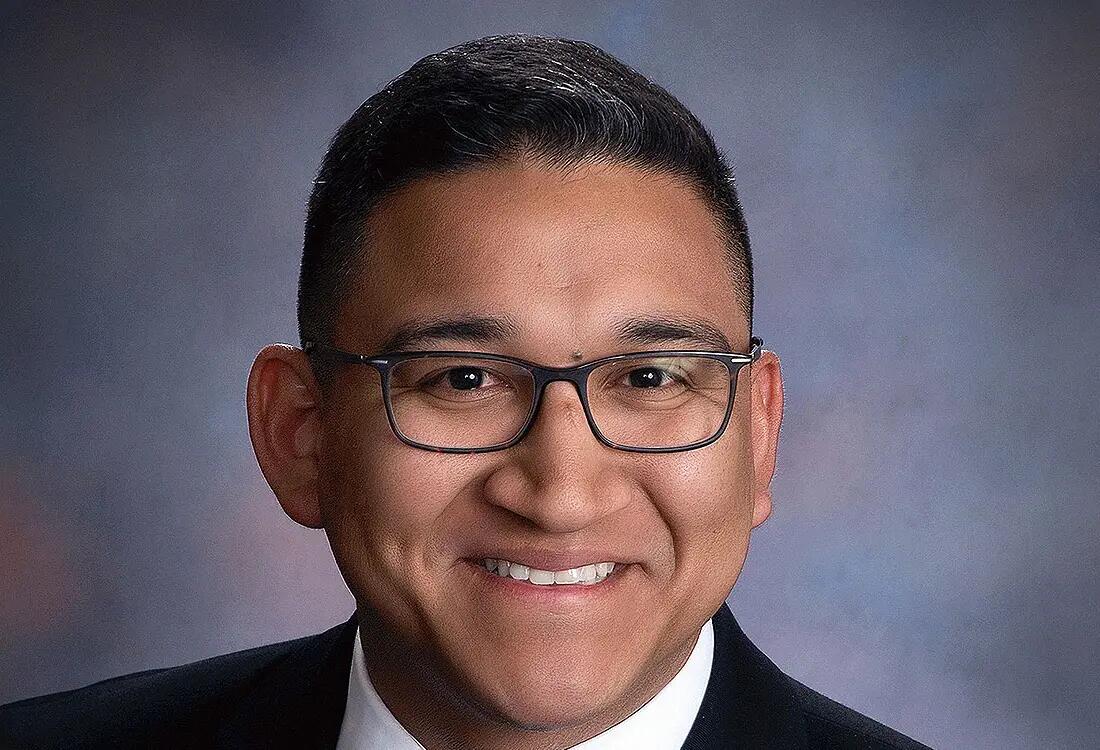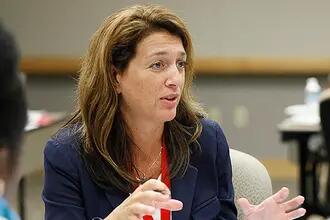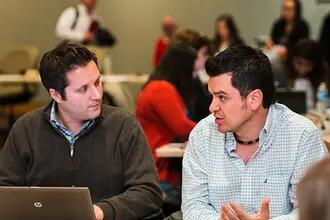
Program Completed:
- Mini-MBA for Engineers and Technology Managers

Alumni Spotlight: Douglas Rann
Douglas Rann is a Senior Business Systems Analyst at BAYADA Home Health Care, a large US based home health care provider with a global presence. He supports revenue cycle management (RCM) systems and business areas. Currently, he is working to procure modern RCM technology solutions that will enhance the patient experience and transparency of the insurance and billing process. Douglas is also working to integrate federally mandated GPS visit verification requirements with existing systems and processes. Prior to his position at BAYADA, Douglas started his career in the field of avionics and transitioned into change management business analysis working for Horizon Blue Cross Blue Shield of NJ as well as the NJ Department of Transportation.
How has your learning been applicable in your current role?
There were a lot of things I pulled from that training that I still use today. I liked the Entrepreneurial and Innovation modules about taking risks and moving quickly while absorbing any feedback and learning from whatever failures there might be, and I definitely use my learning from that in my day-to-day job. That’s also the nature of software development - you have to develop what you really need in the simplest possible way so you’re not introducing too much variation and too many opportunities for failure in your design. Then you review it and build from there. It’s a mentality I carry with me and apply to anything I’m working on.
What motivated you to pursue this program?
I was really attracted to the robust curriculum of the program, as well as the Rutgers Business School’s reputation. Also, the content was oriented exactly to technical people in my role. Resources in technical roles are sometimes abstracted from the internal and external levers that ultimately steer that organization. This course helped bridge that gap in perspective.
How has completing this program helped you to be more effective in your career?
I carry some of the tidbits and tips and tricks from some of the sessions with me into negotiations and meetings today, so I definitely got a lot out of this program. I printed out all presentations and still have them, so every once in a while if I want a refresher or to revisit the information I’ll go back and do some light reading even though there was a ton of content, which was a great thing.
What does the term “Reinvent” mean to you?
In life, I think you are and always have been a certain way, and then for some reason you become motivated to change that way and explore. You might take a turn in a completely different direction that you aren’t expecting to go, but you’re not regretting that you went. I don’t think people reinvent themselves on purpose, thinking, “Today, I’m going to reinvent myself in some other direction.” It’s a result of many small changes over time.
How did you use this program to reinvent yourself?
I was always more of a technical person. I enjoyed math and physics, and enjoyed learning how things worked. Towards the end of my Marine Corps aviation experience, when I enrolled in college, I enrolled in a computer science program because it sounded very technical to me. It wasn’t until I got into more of a professional business setting that I developed an interest in business because business in itself is technical and logical. I think I’m still exploring that technical side of myself in the business setting, whether it is motivating a group of people to adopt a new idea or something else entirely. I am applying that same technical curiosity to the business environment, which is fulfilling the same desire in a different setting. The MiniMBA program helped me to see how I could apply my curiosity in a different way while still satisfying that technical interest.
What does the term “lifelong learning” mean to you?
Lifelong learning is something that is embedded in people. It’s a part of life, or a way of life. I think it’s being curious – it doesn’t have to be in a strictly professional or formal setting. I have many hobbies, including gardening and home projects, DJ’ing, photography, and cycling. There’s always a new space to get into, just to learn how it works. And within all those spaces there’s a community, there are people that are experts, and there will be different ways that work better than others. I have also taken formal steps toward being a lifelong learner. Right now I’m working on my MBA. Before that, eleven years for a bachelor’s degree and 180 credits for that degree was quite a bit, so I was certainly in the habit. I always learn from whatever I venture into, whether I’m good at it or whether I fail. But in lifelong learning for myself, I do try to grow professionally and personally. Even if I’m getting better at something, I’m still humble enough to accept feedback and advice, and to be vulnerable enough to admit that there’s more to learn.
In looking back at your program experience, what stands out to you?
I really enjoyed the caliber of the professors. Everyone was such an experienced professional in their field, and they were very apt in presenting the information and making sure that we understood it. Having classmates from similar career fields but different industries to share perspectives with was also really valuable. The personal stories of joint ventures and initiatives were enlightening. It helped bring into focus the path from idea to reality, even if it’s outside of your comfort zone or specialty.
What advice would you give to professionals or colleagues that might not have considered this type of program?
If they get the opportunity to take one of these courses they should absolutely take it. It’s an energizing experience. I actually brought this up a couple of weeks ago to my director and I informed him that I had taken this class and gained a lot from it. I suggested that it would be great for anyone on our team that has been out of school for a while, wanted a refresher, or that didn’t go to school for a business degree.


